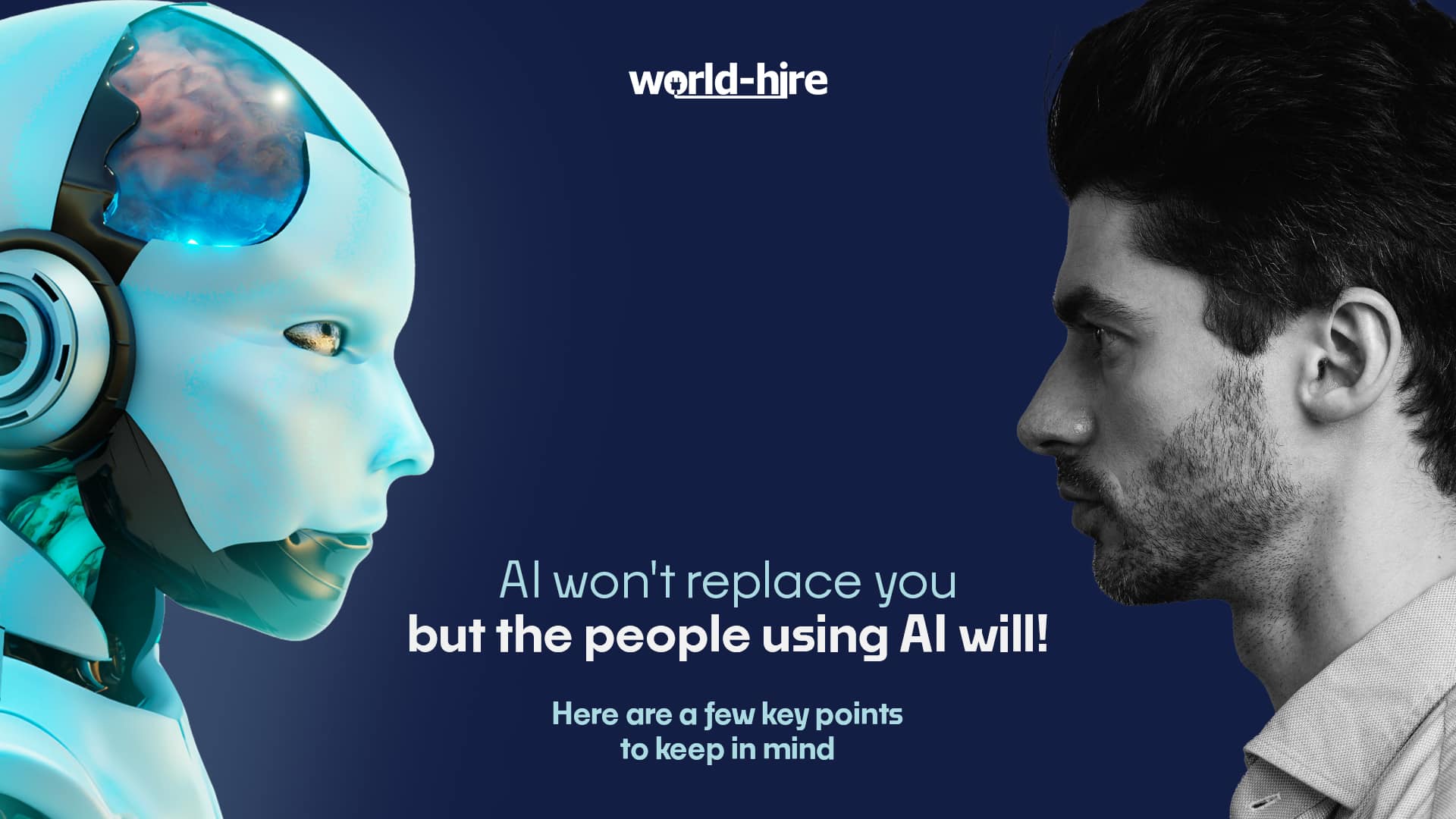AI Doesn't Really Learn: Understanding The Implications For Responsible Use

Table of Contents
The Mechanics of AI "Learning": Statistical Correlation, Not Understanding
The term "learning" in the context of AI, specifically machine learning, is often misleading. AI systems don't learn in the same way humans do. They don't possess consciousness or genuine understanding. Instead, they rely on sophisticated algorithms that identify statistical correlations and patterns within vast datasets. This process is fundamentally different from human learning, which involves comprehension, reasoning, and contextual awareness.
-
Machine learning algorithms excel at identifying patterns. They can analyze millions of data points to find relationships that might be invisible to humans. However, this pattern recognition is not based on understanding the underlying meaning or context.
-
Examples:
- Image recognition: AI identifies objects in images based on pixel patterns and their statistical correlation with labeled images in its training data. It doesn't "see" the image in the same way a human does; it simply identifies patterns.
- Natural language processing (NLP): AI predicts the next word in a sentence based on the probabilities derived from its training data. It doesn't understand the grammar, semantics, or the context of the conversation. It's merely predicting the most statistically likely next word.
-
Limitations: A crucial limitation of AI's "learning" is its inability to extrapolate beyond the data it's trained on. If the training data is incomplete or biased, the AI system will inherit these flaws, leading to inaccurate or unfair outcomes. Deep learning and neural networks, while powerful, share this fundamental limitation. They are powerful tools for pattern recognition but lack genuine comprehension.
The "Black Box" Problem and the Lack of Transparency in AI Decision-Making
Many complex AI systems, particularly deep learning models, function as "black boxes." Their decision-making processes are opaque and difficult to understand. This lack of transparency poses significant challenges:
-
Accountability: When an AI system makes a critical decision—for example, in healthcare, finance, or the criminal justice system—it's crucial to understand the reasoning behind that decision. However, the lack of transparency in many AI systems makes accountability difficult.
-
Responsibility: If an AI system makes a mistake with significant consequences, assigning responsibility becomes a complex legal and ethical issue. Who is responsible – the developers, the users, or the AI itself?
-
Explainable AI (XAI): Researchers are actively developing techniques for making AI systems more transparent and explainable. XAI aims to provide insights into how an AI system arrives at its conclusions, but this is still a field under development. Algorithmic bias is a serious concern amplified by this lack of transparency.
Bias in AI: A Reflection of its Training Data
A significant concern surrounding AI is the potential for bias. Since AI systems learn from data, biases present in the training data are often reflected in the AI's output. This can lead to discriminatory outcomes in various applications:
-
Examples: Biased algorithms have been shown to perpetuate gender and racial stereotypes in areas like hiring, loan applications, and facial recognition.
-
Mitigation: Addressing bias requires careful attention to the data used to train AI systems. Diverse and representative datasets are crucial for mitigating bias and ensuring fairness in AI applications. Ethical AI development necessitates rigorous checks for bias at every stage. This involves not only data curation but also algorithmic design and ongoing monitoring. The field of fairness in AI is dedicated to tackling these challenges.
Implications for Responsible AI Development and Deployment
The limitations of AI's "learning" process have significant implications for responsible AI development and deployment. It's crucial to consider ethical considerations at every stage:
-
Ethical AI guidelines: Developing and adhering to robust ethical guidelines is essential for ensuring that AI systems are used responsibly and for the benefit of society.
-
Human oversight: Human oversight and intervention remain crucial, particularly in high-stakes applications. AI systems should be designed to augment human capabilities, not replace human judgment entirely. AI governance frameworks are vital for setting ethical standards and ensuring compliance.
-
AI regulation: Regulations and guidelines are necessary to promote responsible AI practices and prevent the harmful use of AI technologies. The debate around AI regulation is ongoing, but it's clear that frameworks are needed to address the potential risks of AI.
Conclusion: Understanding the Limitations of AI for Responsible Innovation
In conclusion, AI does not "learn" in the same way humans do. It relies on statistical correlations and pattern recognition, making it susceptible to biases present in its training data and lacking genuine understanding. This lack of true understanding has significant implications for responsible development and deployment. Transparency, accountability, and ethical considerations are paramount. Understanding that AI doesn't really learn, but rather operates based on statistical patterns, is crucial for building a responsible future with AI. Let's work together to ensure AI is developed and used ethically and for the betterment of society. [Link to further resources on responsible AI]

Featured Posts
-
 Acquisition Sanofi Dren Bio Un Nouvel Anticorps Prometteur
May 31, 2025
Acquisition Sanofi Dren Bio Un Nouvel Anticorps Prometteur
May 31, 2025 -
 48 Fun Things To Do In Dc This May Pride Concerts And Exhibits
May 31, 2025
48 Fun Things To Do In Dc This May Pride Concerts And Exhibits
May 31, 2025 -
 Provincial Regulations Key To Unlocking Faster Homebuilding In Country Name
May 31, 2025
Provincial Regulations Key To Unlocking Faster Homebuilding In Country Name
May 31, 2025 -
 Sanofi Ne Doit Pas Vendre Son Usine D Amilly Appel A La Mobilisation
May 31, 2025
Sanofi Ne Doit Pas Vendre Son Usine D Amilly Appel A La Mobilisation
May 31, 2025 -
 Bernard Keriks Family Wife Hala Matli And Children
May 31, 2025
Bernard Keriks Family Wife Hala Matli And Children
May 31, 2025
